




Special Sessions
Special Session on Technology for Specially abled persons

Dr. VIshal Goyal
Professor, Punjabi University, Patiala, Punjab

Dr. Gurpreet Singh Josan
Associate Professor
Punjabi University, Patiala, Punjab
Punjabi University has established very unique centre with the name “Research Centre for Technology Development for Differently Abled Persons” and lots of technologies are being developed so far as funded projects or in house products. In this era, Technology is advancing day by day. With the advancement of technology, a lot of research is being carried out through the world for the betterment of the lives of Specially Abled People around the globe. This special session is focusing on looking for the research papers based on the technologies being developed covering all disabilities like blindness, autism, deafness etc in relation to technology development for differently Abled persons.
Special Session on Emerging Intelligent Computing Techniques and their Applications (EICTA)

Dr. Nitish Pathak
Associate Professor,
College of Engineering and Technology,
Bhagwan Parshuram Institute of Technology (BPIT),
Guru Gobind Singh Indraprastha University (GGSIPU), New Delhi, India

Dr. Neelam Sharma
Assistant Professor
Department of Computer Science and Engineering,
Maharaja Agrasen Institute of Technology (MAIT),
Guru Gobind Singh Indraprastha University (GGSIPU), New Delhi, India
Emerging technologies and Intelligent Computing Techniques are offering practical tools for many engineering applications. Computer learning, artificial intelligence and its learning, adaptation paradigms are able to improve engineering applications. The objective of this Special session is to explore Emerging Intelligent Computing Techniques and their applications. We hope to bring researchers and academics together to present their latest work on Emerging technologies, Intelligent Computing Techniques, Intelligent Communication Systems, Machine Learning for Data Science, Web Mining, Wireless Networks & IOT, Big Data Communication, Cloud communications and networking etc. In this thematic session, we solicit the submission of high-quality original research and articles closely related to the following topics, particularly interdisciplinary submissions that bring together next generation Intelligence of Things, Artificial intelligence, Smart information processing, IoT security, AI techniques and optimization algorithms and Privacy and trust researchers.
Special Session on IoT and Smart City Technologies: Recent Approaches, Challenges,Application, & Future Techniques
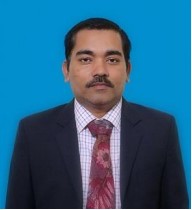
Dr Anil Kumar Dubey
Associate Professor, Dept of CSE ABES Engineering College, Ghaziabad

Dr Mala Saraswat
Associate Professor, Dept of CSE ABES Engineering College, Ghaziabad,
As cities grow and expand, smart and innovative solutions are crucial for improving productivity, increasing operational efficiencies, and reducing management costs. Citizens are gradually equipping their homes with IoT devices such as TV and Internet box. In the real estate sector, connected objects include thermostats, smart alarms, smart door locks, and other systems and appliances. For example, intelligent waste containers can bring real benefits to citizens; they will be able to indicate that they are soon going to be full and must be emptied. Citizens can check through a smart phone application if the waste containers in the street are full or not. Also, after waste containers reports their status, companies can offer route optimization solution to the teams responsible for garbage collection. Places can be equipped with sensors and monitor environmental conditions, cyclists or athletes can find the most "healthy" trips and the city can respond by adjusting the traffic or by planting more trees in some areas. The data will be accessible to all citizens to promote the creation of applications using real-time information for residents. Cities have become hubs for knowledge-sharing. The technologies and solutions needed for creating smart cities are just beginning to emerge. Fi Emerging technologies and Intelligent Computing Techniques are offering practical tools for many engineering applications. Computer learning, artificial intelligence and its learning, adaptation paradigms are able to improve engineering applications. The objective of this Special session is to explore Smart city: Recent Approaches, Challenges Application, & Future Techniques. We hope to bring researchers and academics together to present their latest work on Io t base Smart cities, IoT based smart cities, Intelligent Computing Techniques, This session will endorse the notable research contributions by scholars and scientist worldwide included specific topics. This will be also a good reference to the professional in this area of research, target to present, endorse and discuss current research. In this thematic session, we solicit the submission of high-quality original research and articles closely related to the following topics, particularly interdisciplinary submissions that bring together next generation Intelligence of Things, Artificial intelligence, Smart information processing, IoT security, AI techniques and optimization algorithms and Privacy and trust researchers.
Special Session on Recent Developments on Big Data Analysis of Expert System Based Models Using IoT & Machine Learning
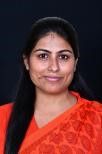
Dr. Astha Pareek
Senior Assistant Professor, Dept. of Computer Science and Information Technology IIS (Deemed to be University) Jaipur, India

Dr. Anubha Jain
Associate Professor, Dept. of Computer Science and Information Technology IIS (Deemed to be University) Jaipur, India
The main aim of this special session is to the data analysis of expert system-based models provide a visual way to manage new data resources, its operation and maximum usability using big data analytics. The challenge of big data is querying relevant data easily and creating data models on available physical data and computing path to help and manage raw data. The future will bring more hybrid systems combining the attributes of machine learning performance analysis approaches. One of the objectives of this session is to introduce about analysis, processing and storing very complex expert systems. Most of the users of modern computer system prefer to use different tactics and strategies to improve the decision making skills relevant to expert system or artificial intelligence system.
Special Session on Computer Vision for Security and Surveillance

Dr. Dushyant Kumar Singh
Assistant Professor, Computer Science & Engineering Department, Motilal Nehru National Institute of Technology Allahabad Prayagraj, U.P. 211004, INDIA
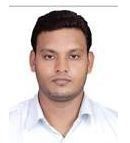
Dr. Shambhu Shankar Bharti
Assistant Professor, Computer Science & Engineering Department, Lok Nayak Jai Prakash Institute of Technology Chhapra, Saran, Bihar-841302
Emerging technologies and Intelligent Computing Techniques are offering practicaltools for many engineering applications. Computer learning, artificial intelligence andits learning, adaptation paradigms are able to improve engineering applications. The aim of this special session is to focus on the prevalent research problems in the computer vision domain, very specifically revolving around automation in surveillance and security. Security in public, inside buildings, shopping centers, bus/railway stations, airports, and other public spaces, is always a concern for an individual, society, and nationality in all. Surveillance is the method of monitoring for security and camera-based surveillance now-a-days is much more popular. CCTV installments can be seen almost everywhere as a tool for security arrangements. Video logs and real-time stream can be used for active surveillance. Computer vision hence has a big scope in the domain. Surveillance through computer vision therefore has ample research scope to work for monitoring suspicious activities like robbery, crowd violence, theft, fighting, shooting, firing, etc. at various public places. Surveillance for border security could be another research area. Here, idea is to explore various application domains which directly or indirectly include computer vision for automating the system involved therein.
Special Session on Integration of AI and IoT for Digital Transformation (IAIDT)
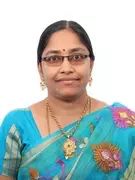
Dr.R.Sujatha
Associate Professor - School of IT and Engineering
Assistant Director (Students’ Welfare)
Vellore Institute of Technology,
Vellore, Tamil Nadu, INDIA
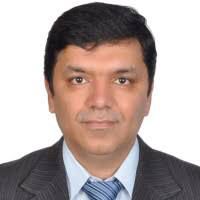
Dr. Noor Zaman Jhanjhi
Associate Professor,School of Computer Science
Director Center for Smart Society 5.0
Taylor’s University, Malaysia.
AI and IoT have transformed the contemporary corporate landscape. The combination of these technologies aids businesses in making appropriate decisions. Here, linked gadgets generate massive amounts of data, which AI can process and assess. Although AI and IoT are two of the most widely used technologies today, their applications may lag; when combined. IoT and AI work well together, producing a brilliant relationship in which IoT gathers data, and AI translates it into actionable insights. Therefore, they are known in the digital world as a digital match made in heaven. Automation enabled by IoT, which is merged with AI, and its component technologies in a cloud-based platform, creates a beautiful resource for firms in many industries such as healthcare, energy, retail, automobile, manufacturing, and so on, regardless of their size, scale, or business strategy. The upcoming new trends and developments in all directions such as Society 5.0, Healthcare 5.0, Industrial Revolution 5.0 etc., are heavily dependent on the role of AI and IoT in one or another form. Merging benefits are multifold. Customer Experience Through Data Sharing and Analysis Protecting corporate data with increased security. Getting Rid of Unexpected Downtime Innovation Potential. The objective of this Special session is to explore the integration of AI and IoT for Digital Transformation. We invite submissions of high-quality original research and articles closely related to the following topics in this thematic session, particularly interdisciplinary submissions that bring together next-generation applications, artificial intelligence, cloud computing, cybersecurity, machine learning for industries, big data, and cloud communication etc.
Special Session on Next Generation Security Trends For Smart Technologies
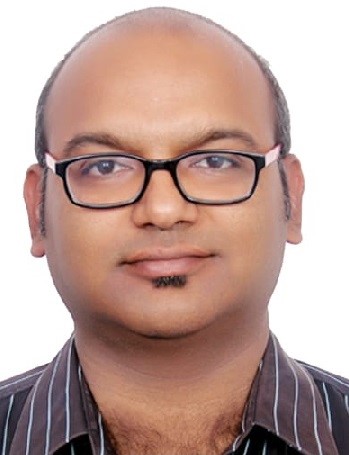
Dr Anand Sharma
Asst. Prof.- CSE Department, SET
Mody University of Science and Technology, Lakshmangarh
Rajasthan
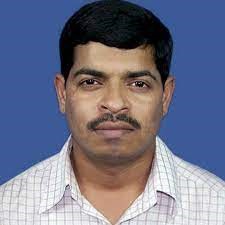
Dr S. R. Biradar
Professor-ISE Department, SDM-CET, Dharwad Karnataka

Dr Alok Kole
Professor - Electrical Engineering Department, RCC Institute of Information Technology West Bengal
In under a decade, cybersecurity has emerged as one of the most important systemic issues for the global economy. Incidents and attacks continue to rise, but this is only the tip of a new and growing problem. The critical technology transformations on which future prosperity relies – ubiquitous connectivity, artificial intelligence, quantum computing and next-generation approaches to identity and access management – will not just be incremental challenges for the security community. They have the potential to generate new and systemic risks for the global ecosystem, and at this stage, their full impact is not well understood. This suggests the urgent need for collective action, policy intervention and improved accountability for government and business. Without interventions now, it will be difficult to maintain the integrity and trust in the emerging technology on which future global growth depends. The Future Series was launched to answer a single question: Will our individual and collective approach to managing cyber risks be sustainable in the face of the major technology trends taking place in the near future? The objective of this special session is to find the answer of above question. This Special session aims to publish work relating to recent advances in cyber security regarding every step of smart development. We welcome both original research and review articles.